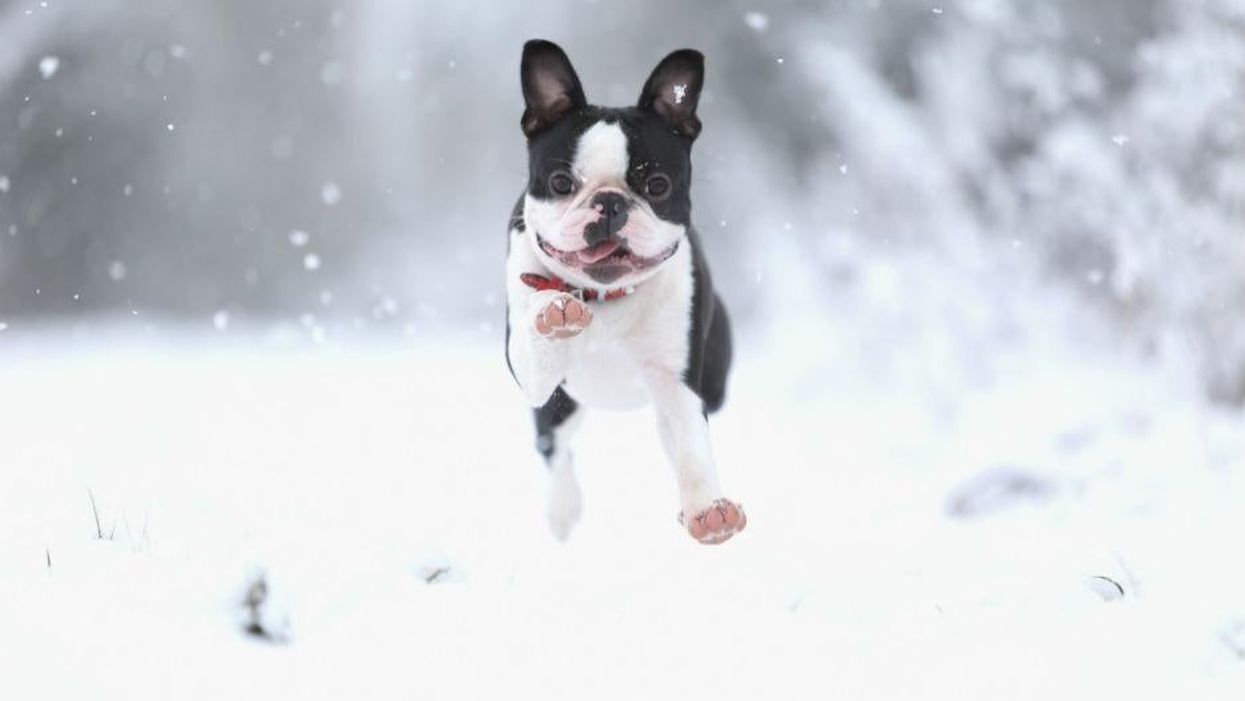News
Evan Bartlett
Jan 26, 2015

Freddy the Boston Terrier bounds through the snow in Nottingham, January 2013
Four inches of snow is forecast in parts of Britain this week with cold temperatures expected to spread across the country. Meanwhile the north-east coast of America is braced for a far more substantial "potentially historic" storm, according to the US's National Weather Service.
In light of that, here is the science behind being cold.
The cold weather makes you bitchy
According to a recent study by Nagoya University in Japan, cold temperatures actually affect levels of empathy in people and make them more likely to be "cold-hearted".
You're more likely to catch a cold in the cold
Although many dismissed this as an old wives' tale, researchers at Yale University discovered this month that viruses that cause the common cold replicate more easily at lower temperatures.
Because extremities like the nose often have a lower temperature of other parts of the body, the researchers say their findings "give credence" to warnings about wearing a scarf.
Women have colder hands than men
Females tend to have a higher core body temperature than men but their hands are consistently colder, according to a 1998 study published in the Lancet. Scientists have said this could be because women tend to have more body fat.
Cucumbers are actually cool
Believed to have first been used by the poet John Gay in an 18th century poem, the phrase "cool as a cucumber" actually has some basis in fact.
The inside of a cucumber has been observed as being 20 degrees cooler than the outside air.
The head is no more efficient at losing heat than any other part of the body
According to a study by the University of Indianapolis, the head and neck - which comprise roughly 10 per cent of the body's surface area - are no more efficient at losing heat than other parts of the body. That study debunked the widely believed myth that 40 to 45 per cent of body heat is lost through the head.
The "beer jacket" is a dangerous myth
Drinking alcohol dilates "peripheral blood vessels" near the skin which sends more blood to those parts of the body. That's why it often feels like you warm up when you've had a few to drink.
However, what it actually means is that while your skin feels warmer, your vital organs are probably colder and with more blood near the skin's surface you can lose heat more quickly.
Spare a thought for the residents of Oymyakon
When the temperature temporarily drops below freezing in Inverness or Belfast this week, spare a thought for the residents of Oymyakon.
The Russian village is reckoned to be the coldest permanently-inhabited place on Earth - with an average January temperature of -50C.
To warm up, take a dip in the sea...
Although it will feel bitterly colder if you were foolish enough to go for a swim, sea temperatures around the British Isles will be warmer than the air temperatures this week. That phenomenon is largely due to the albedo effect - the rate at which energy from the sun is reflected off surfaces.
While land reflects the heat relatively quickly and is therefore lost at a faster rate, water is better at absorbing the rays and therefore maintains a steadier temperature.
Top 100
The Conversation (0)













